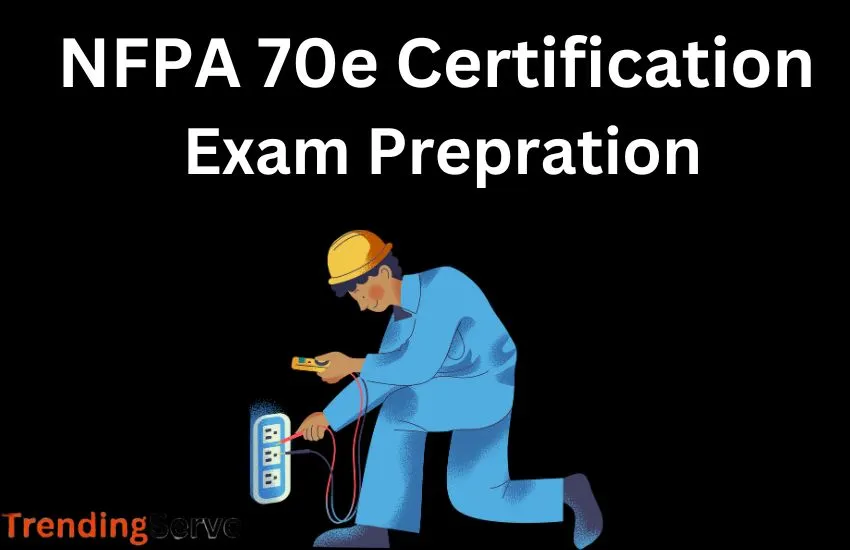The Scrum Master job is critical in the Scrum framework because it maintains team agility. A Scrum Master has two vital roles.
One is working with the development team and the second involves the Product Owner and the stakeholders.
The Scrum Master in the team enables the weekly procedures, fixes the constraints of the development team, and monitors and boosts efficiency in the team.
Scrum Master also presents significant observations to the Product Owner, clients, and stakeholders.
PSM training certification and CSM are excellent certifications that Scrum Masters can acquire if they want to lead a successful team to meet the organization’s objectives.
Read this article to understand the note-worthy differences between CSM and PSM training certifications.
What Is Scrum?
Scrum is a method or framework that aids in the generation of adaptable solutions to modern-day complex challenges and the delivery of the product value.
It is a journey in which team members are praised for their accomplishments in various tasks, their shortcomings are developed, and they learn from their mistakes.
As a result, the entire team focuses on a specific job while using Scrum approaches to create a superior product.
What Is the Certified Scrum Master Certification(CSM)?
The Certified Scrum Master is a popular credential. CSM is the foremost Scrum Master credential and is worldwide recognized. Many applicants who work as Scrum Masters in Agile businesses have received the CSM certification.
The CSM course presents the applicant with the training needed to assist the Scrum Team in performing to the best of their abilities.
The certification gives you an in-depth understanding of the Scrum Framework, approaches, and practices.
The candidate will get a deeper grasp of the responsibilities, activities, and assets of the team. Individuals also learn about internal and external diversions that impact the Scrum team, and efficient methods for dealing with these diversions.
Professional Scrum Master Certification (PSM)
The PSM certification is a course for two days that covers the Scrum Framework’s concepts and empirical process theory, and the Scrum Master’s role. The course is the foundation of Scrum and Agile.
The PSM training introduces candidates on boosting the efficiency and effectiveness of the Scrum team.
The PSM certification is leading-edge for successful Scrum Masters and professionals interested in team coaching.
The course teaches supervision and behavioral changes. The PSM training course pushes students to question their learning of Scrum concepts to have a better understanding of the workforce.
The Governing Body for PSM Training
- Scrum.org. is the governing body for PSM training certification.
- Scrum Alliance. is the governing body for CSM Certification.
Acquiring Certification
- To obtain CSM certification, one must take a two-day training session led by a licensed education provider, followed by an online exam. The CSM Certification test has a passing score of 74%.
- PSM certification is divided into three levels: PSM I, PSM II, and PSM III. Attendance is not essential to pass the PSM certification. A password must be purchased from Scrum.org before enrolling in the PSM Certification. To appear for PSM 1 directly, one must have relevant years of experience in the real-world execution of the Scrum Framework. To get the Professional Scrum Master title score 85% in all the levels.
Prerequisites
1. There are no prerequisites for taking the Professional Scrum Master (PSM) test. You do not need to go through any Scrum training from a certified training platform.
Scrum expertise is the only thing required for this exam. So, if you understand the Scrum framework, its methodologies, and practices, you can take the exam.
2. There are no prerequisites or qualifying criteria for the CSM, such as those found in other project management certificates, like a high level of education or experience.
The only two prerequisites are that the candidate attends CSM certification training and passes the CSM certification test.
How to Register for the Scrum Master Exam?
CSM Exam Registration
- Enroll in a minimum of two days of instruction from a recognized teacher or platform.
- After finishing this course, your certified Scrum trainer or a Scrum-validated platform will send your information to the Scrum Alliance organization, saying that you have finished this training program.
- You will receive an email inviting you to take this certification exam. This email will also provide the login information.
- Go to scrumalliance.org/login and input your login information. Now, click on hi, your name and choose my dashboard.
- Now, choose “Take CSM Test.” Continue after selecting the language. You will be routed to the site, where you can take the exam.
Professional Scrum Master I Registration
- Go to the scrum.org website. In the navigation bar, select the Certification option.
- Now, under PSM I Assessment, go to Professional Scrum Master and select Buy Option.
- Transfer the payment, and you will get a mail within 1 business day to take the examination.
- You can also take this exam without PSM training.
What Is the Cost of Certification?
CSM Certification Cost
| Cost Category | Cost breakup |
| Training cost | 19,999/- in India, $ 1295 in the US |
| Succeeding attempts | The second attempt within 60 days of completion of the training is free. – $25 after two attempts. |
| Renewal Fee | $100 and 20 SEU’s, after every two years |
PSM Certification Cost
| EXAM | Cost in dollars |
| PSM 1 | 150 |
| PSM 2 | 250 |
| PSM 3 | 500 |
| Total | 900 |
Scrum Master Exam Pattern
CSM Exam Pattern
The Scrum Master Exam consists of 50 multiple-choice questions and true/false questions with a limited time of 60 minutes.
To pass this test, you must answer 37 questions correctly and get a passing grade of 74%. There will be no exam cost if you are taking this test for the first time.
Professional Scrum Master Exam Pattern
| Level | No of Questions | Duration of Exam | Exam Type | Test Covered |
| PSM I | 80 | 60 min | MCQ and True/False Questions | Scrum Framework, Rules, and Values. |
| PSM II | 30 | 90 min | MCQ and True/False Questions | Case study-based questions to assess what to do in this situation and identify the best options |
| PSM III | 34 | 120 Min | A mix of MCQ and Case Study or Essay type question answers | Combination of the above two and essay type |
CSM Course Benefits
- Obtaining positions as Scrum Masters in numerous sectors that use Agile methodologies.
- Learning about the fundamental Scrum ideas, principles, and practices.
- Increase understanding of the Scrum framework and the responsibility of the Scrum Master.
- Working with several Agile practitioners dedicated to continual improvement.
- The CSM course provides a pathway to more advanced CSM courses such as A-CSM, CSP-SM, CST, and so on.
- Scrum Master remuneration packages vary depending on certification level, amount of years working as a Scrum Master, and country of employment.
- Employees may have higher earnings packages with incentives based on the organization they work for, the number of years they have worked as a Scrum Master, and the country they work in.
- CSM certification increases the candidate’s standing within their workplace.
- By becoming a member of the Scrum Alliance, you can communicate with various Scrum professionals and learn new skills.
PSM Certification Benefits
- Mastering Scrum ideas in depth so that applicants have a complete understanding of the Scrum methodology and framework.
- Becoming a known professional in the organization, as the PSM certificate confirms that the individual has expertise in Scrum.
- More career prospects because recruiters from prominent businesses are seeking motivated individuals who are willing to learn and have shown their Scrum expertise by enrolling in the PSM certification course.
- The PSM training serves as a platform for individuals to improve in their jobs and pursue higher courses such as PSM II and III.
- The PSM training unites Scrum professionals on the Scrum.org network and updates them on current Agile developments.
PSM vs CSM: Which Is Better?
Out of the two courses, it is tough to come down to the best option, when comparing CSM and PSM certifications. Both paths are determined by the individual’s aspirations and personal goals.
The training emphasizes candidate engagement with the Certified Scrum Trainer in the CSM certification. In the PSM certification, the candidate is assessed on the basis of the PSM examination.
Thus, the answer depends entirely on your objective for getting Scrum certification:
- PSM is a good option if you want to learn more about how to implement Scrum in real-world circumstances.
- However, if you want to learn more about Scrum theory and processes, CSM is a better choice.
Conclusion
The Professional Scrum Master certificate and CSM credentials are both good courses that individuals keen on the product development cycle might take.
Individuals must be clear about both the course curriculum and which will benefit their organization or land them their dream job.
The concept of the courses differs, and the candidate enrolling in the courses should conduct extensive research before enrolling. Both courses provide excellent career chances for professionals and are in high demand in leading Agile firms.
Hence, choosing PSM training or CSM certification should be based on your interest, goals and preferences, and the organization for which you choose to work.
Is it worthwhile to get Scrum Master certification?
Yes, obtaining Scrum Master Certification is worthwhile. From the perspective of enterprises, every other firm is implementing agile project management tools. As a result, there are various career opportunities.
Is the Certified Scrum Master examination difficult?
It is not a difficult examination. You must be well-prepared, with a solid grasp of Scrum responsibilities, regulations, and Agile practices.
How many times can I give the PSM exam?
You can give the PSM exam without any limits. Also, there is no timeframe to make another attempt to clear the exam.




